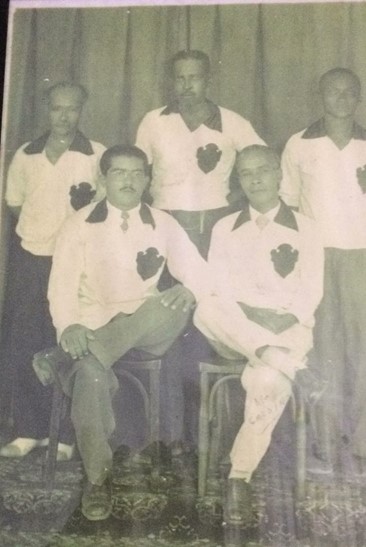Marcelo D'Salete & Angola Janga no curso "Performing Brazilian Culture: Race and Gender on Stage"
On September 28th, Mauricio Acuña, Marília Librandi and their students welcomed the illustrator and professor Marcelo D'Salete. D’Salete involved students in a debate about the creation of black narratives in the form of the graphic novel through his award-winning book Angola Janga - Kingdom of Runaway Slaves. This encounter was part of the course “Performing Brazilian Culture: Race and Gender on Stage", a Princeton Challenge course. In Angola Janga, D'Salete narrates a history of the "Quilombo dos Palmares", the main village, among dozens of others, that provided a place for freedom-seeking runaways during the time of slavery in Brazil's colonial period. Working in black and white, mixing historical sources and imagination, D'Salete aims to capture the lives and experiences of the vast spectrum of individuals that Quilombo affected: slaves, runaways, village dwellers, slave hunters, free-born and conflicted leaders. In his discussion with the class, Marcelo D'Salete gave a comprehensive introduction about the consistent historical tradition of black narratives in Brazil during the twentieth century and focused on three main questions: the colonial sources available to inspire and guide the illustrator in search of images of the past, the counter reading of documents such as maps and paintings from the colonial period to find erased representations of black subjects, and the tendency in historical representations to overdetermine the role of figures such as Zumbi and a few black male heroes. D’Salete engaged with questions and comments from the students who had read the book in advance. Topics of discussion included the dialogue of the graphic novel with other arts, such as cinema, paintings, photography and theater, the repressed histories of Brazil's colonial period, the limits and potential of collaboration between art and history, and the aesthetic variety in representing bodies, trajectories and gestures. This online discussion was co-sponsored by the Program in Latin American Studies, the Department of Spanish and Portuguese, and the Brazil LAB.



Comentários
Postar um comentário